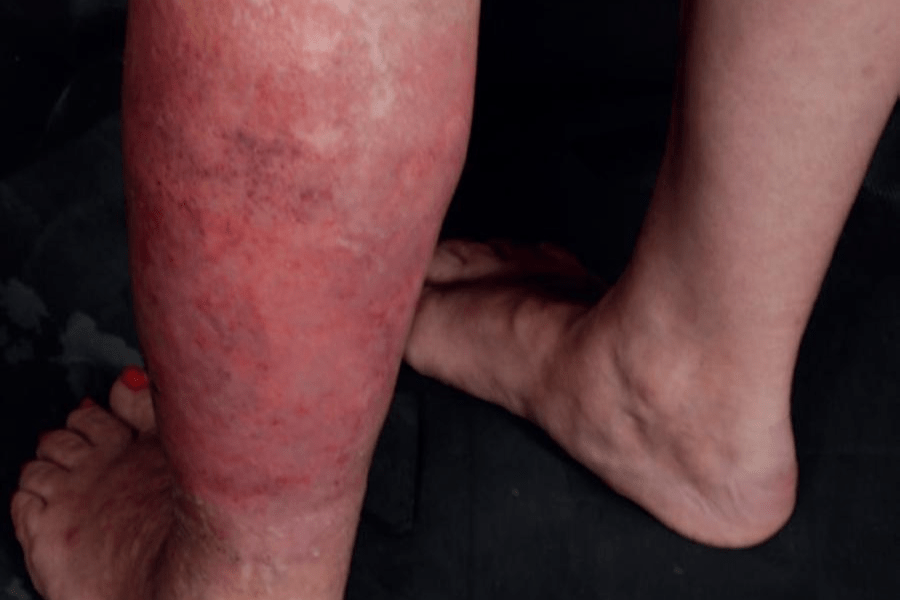Behcet s Disease
Overview

Behcet's disease, also known as Behcet's syndrome or malignant aphthosis, is a rare autoimmune disorder that causes inflammation in various organs of the body.
Symptoms may include mouth sores, genital sores, skin rashes, and eye inflammation.
Treatment involves a multidisciplinary approach with specialists such as rheumatologists, dermatologists, and ophthalmologists.
Avoidance of triggers and medications to control inflammation and pain are also recommended.
While there is no cure for Behcet's disease, early diagnosis and treatment can help manage symptoms and prevent complications.
Symptoms
• Symptoms of a medical condition vary based on the affected body part.
• Areas like the mouth, skin, genitals, eyes, joints, blood vessels, digestive system, and brain may be affected.
• Common symptoms include painful mouth sores, acne-like skin lesions, and tender nodules.
• Joint swelling, vein and artery inflammation, and digestive issues are also common.
• Inflammation in the eye may lead to redness, pain, and blurred vision.
• Recognizing these symptoms is crucial for prompt diagnosis and appropriate treatment.
Causes & Risks
• Confirming Behcet's disease through tests is not feasible; diagnosis relies on symptoms.
• Recurrent mouth sores, happening at least thrice within a year, are a common indicator.
• Additionally, two other signs like recurring genital sores, eye inflammation, or skin lesions are necessary for diagnosis.
• Doctors rely on patient-reported symptoms to assess the likelihood of Behcet's disease.
• The presence of specific symptoms, such as mouth ulcers and other associated signs, aids in diagnosis.
• Accurate diagnosis is crucial for initiating appropriate treatment and managing Behcet's disease effectively.
Test & Diagnosis
• Medications are essential during flares to manage symptoms.
• Skin creams, gels, and ointments can ease pain and inflammation when applied directly to sores.
• Mouth rinses with corticosteroids help alleviate pain from mouth sores.
• Eyedrops containing corticosteroids or anti-inflammatory agents reduce eye redness and pain.
• Topical treatments target specific symptoms, providing localized relief.
• Proper medication management is vital for controlling symptoms during Behcet's disease flares.
Treatment
• Flares may prompt symptoms managed with medications like skin creams and gels.
• Topical corticosteroids are applied directly to skin and genital sores to ease inflammation and pain.
• Mouthwashes with corticosteroids reduce discomfort from mouth sores.
• Eyedrops containing corticosteroids alleviate mild eye inflammation, easing pain and redness.
• Medications target specific symptoms, offering localized relief during flares.
• Proper medication use is crucial for managing Behcet's disease symptoms effectively.
Living With
Living with Behçet's disease can be a challenging experience due to its unpredictable nature and diverse range of symptoms.
The disease is characterized by recurring flare-ups and periods of remission, with symptoms that can vary widely among individuals. These symptoms can include mouth ulcers, genital sores, skin lesions, joint pain, eye inflammation (uveitis), gastrointestinal issues, and vascular involvement, causing significant discomfort, pain, and fatigue that impact daily activities and overall quality of life.
Eye inflammation is a common complication, which can lead to vision problems, sensitivity to light, and even vision loss if left untreated.
Managing the condition can also be emotionally challenging, leading to stress, anxiety, depression, and social and personal limitations due to the impact of flare-ups on daily life.
Treating Behçet's disease often requires a combination of medications to control inflammation and symptoms, which can lead to potential side effects or require regular monitoring.
Complications
• Behcet's disease poses severe risks, including ocular and neurologic complications.
• Patients may face hypopyon-related uveitis, risking blindness.
• Coronary or pulmonary arterial aneurysms may rupture, leading to high mortality.
• Central nervous system involvement can cause lasting deficits or death.
• Miscarriages may be caused by placenta vasculitis, highlighting the importance of early detection and treatment.
• Early identification and treatment are crucial to prevent lifelong complications from Behcet's disease.

The Content is not intended to be a substitute for professional medical advice, diagnosis, or treatment. Always seek the advice of your physician or other qualified health provider with any questions you may have regarding a medical condition.
Know more about
Our Healthcare Planner
Personal Health Planner at BNC is a support staff who listens to your concerns and connects you with a Neuro Care provider. They prioritize your needs and create a trusting relationship between you and the provider.
Three fundamental values we can assure you:
1. Personalized Healthcare.
2. Most advanced robotic therapies
3. Transparent pricing





